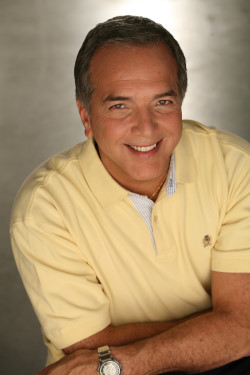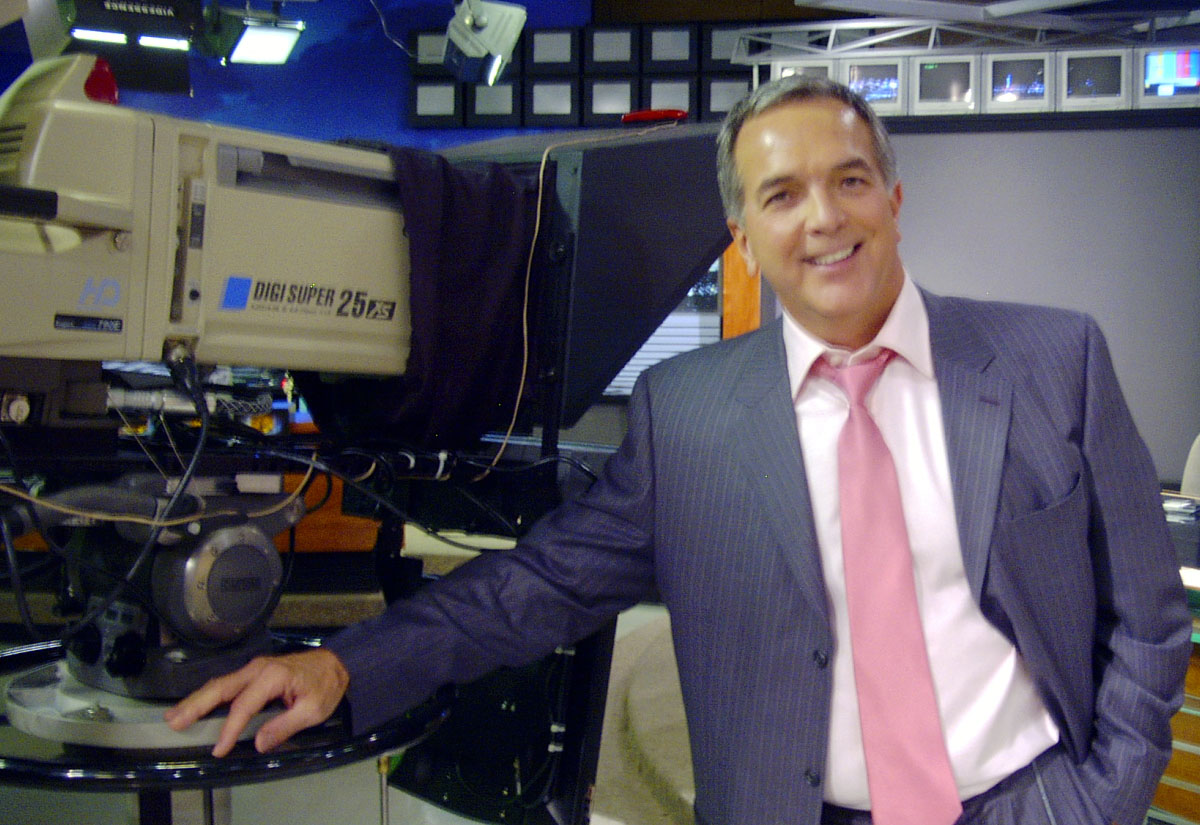|
A Sea Change Sweeps Voice-Over
Careers to the Internet & Biz Smarts
Voice actor Dave Courvoisier, who is also the evening news anchor at KLAS-TV in Las Vegas, was asked by friends at RainRecording to write about today’s changing voice-over career field. His excellent review is reprinted here, with permission …
By Dave Courvoisier
Voice Actor
 They work in isolation. They work in isolation. Every day in America, hundreds of individuals climb into a closet or sound booth in their own home, close the door, fire up their audio chain, take a position in front of a pop-filter, and begin voicing copy into a microphone.
Yes, they’re performers, but with improvements in professional audio tools forever altering the voice-over landscape, today’s voice performers are also technologists - adept at computers, audio software and hardware to a degree not seen before.
Yet, they also wear the hat of entrepreneurs, accountants, marketers, promoters, web designers, bloggers, and disciplined, enterprising self-starters.
They’re the new breed of voice-over talent … who prefer to be called voice actors. The Internet makes their existence possible in a way no one could’ve predicted 10 or even five years ago.
The world of voice-over work is in a sea change.
YESTERYEAR …
In the “old days,” an established “voice” (be it from radio, TV, stage or sports announcing) lived in a major metro area to take advantage of local voicing opportunities: LA, NYC, Chicago, San Fran, Atlanta, etc.
He (back then it was mostly “he”) set up relationships with local producers and/or was handled by an agency.
He traveled around to the various production houses when there was work, and delivered his reads, or sat for auditions in sound booths IN those studios.
He was likely a member of an actors union, and over time may have made a decent living by voicing local/national commercials, TV and radio imaging, and doing some event announcing and narrations.
BIG CHANGE …
Today, a spectrum of voice quality – from beginner, to average, to obvious pro - showing at least some facility with interpreting copy, establishes his or her (it’s almost 50/50 gender-wise, now) sole-proprietorship business out of a room in the family home or apartment virtually anywhere in the modern world.
That person spends in the range of $300 to $3,000 to equip the home studio. The more novice voice talent may feel that with only a little effort and investment, voice-over success can be easily had.
But the more established voice talents understand that even after investing a few thousands of dollars in technology, performance and training, less of their time is actually spent performing - and more time is spent on generating new leads, networking with agents and studios, and building their business on the Internet.
HOW WE GOT HERE
Many new hopeful voice actors today have been told time and again that they “have a nice voice.”
Sometimes on that assessment alone, they’ll launch into classes with a voice-over coach offering varying degrees of price, expertise and integrity.
Most of these “noobs” are similar in their complete lack of preparation for the other half of the voice-over profession – the business of running a business.
A traditional bastion of talent support had been an actor’s union or guild. The Screen Actor’s Guild (SAG) and the American Federation of Television and Radio Actors (AFTRA), though, are currently suffering a deep rift, and both struggle to find a meaningful way to represent voice actors in today’s new paradigm.
Talent agents, too, have often successfully represented actors to major studios, and still remain a key conduit to the best-paying jobs.
But both unions and agents have been undercut by the advent of online voice talent subscription services.
ENTER THE INTERNET …
Online sites such as Voices.com and Voice123 are greatly contributing to a wave of change in voice-overs. Such sites attempt to match “voice seekers” with voice actors, with varying effects.
Yes, the services level the playing field, and offer a wide selection of jobs, but the process of bidding or auditioning for each job becomes a cattle call that tends to price-down the threshold of what tradition would term “a fair price”.
In some odd instances, voice actors find themselves competing with their own agents for jobs listed on these pay-for-play sites. This happens as professional voice talent agencies sometimes bow to the demands of their core customers, eager to find “a” voice at the “right” price.
The situation has prompted some lively debates in online forums about where it will all lead.
DOING IT ALL
For years, performance alone had been the gauge of the most successful voice talents. But today’s job description is much more complex.
Along with well-voiced copy, successful modern day voice actors must also rise to a fairly high level of software and hardware competency, often taking the place of the traditional engineer, producer, or audio expert.
Some do this more adeptly than others, obviously. Many online forum discussions detail the minutiae concerning microphones, DAW’s, preamps, compressors and software audio editors - not to mention methods of uploading large files, web-design, and ISDN.
Much like the record industry, change and tradition clash in today’s marketplace of voice talent. But the talent of today must also embrace the changes and harness the tools that can drive the development of a true professional’s impressive instruments.
 Also read Dave Courvoisier's VoiceOverXtra feature on how doing voice-overs has helped his TV news anchor performance. He's seen here in the KLAS-TV studio.
Dave Courvoisier (“pronounced just like the fine cognac, only no relation”) is an Emmy Award-winning broadcaster, writer, producer, voice actor, and the main weeknight news anchor on KLAS-TV, Channel 8, the Las Vegas CBS affiliate. He also writes “Voice-Acting in Vegas,” a daily blog of adventures and observations in a style that’s true to his friendly Midwestern farm roots.
Email: CourVO@CourVO.com
Web: www.CourVO.com
Blog: www.CourVO.biz
TV bio: KLAS-TV bio link
|
|
|
Tell Us What YOU Think!
Please Note: Since we check for spam, there will be a slight delay in the actual posting of your comment.
Comments
No comments have been posted yet. Hurry, and you could be the first!

.gif)





.png)

click for new article alerts